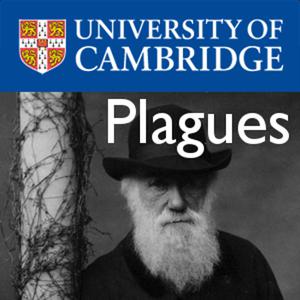Plagues, Populations & Survival
The gold rush of whole genome sequences spurred by the human genome project, is heralding a new way to study the previously unanswerable from pre-history; allowing us to now mine the genomic footprints of ancient defining events of humankind and other mammals. As early paleontologists conjured up extinct forms based on fossil remains, genetic archaeologists reconstruct the origins of genomic patterns derived from ancient demographic episodes. Modern scourges that clog the world’s hospitals represent a major challenge to human health and a historic selective regulator. Past interactions between constantly adapting pathogens and finely-tuned, ever-evolving immune defenses represent a biological puzzlement that is only beginning to be deciphered. In my presentation I will illustrate how we learn hidden lessons of survival, adaptation and genome evolution referred from current views of natural history with new insights from genomes of wildlife species and ourselves. I will provide an early glimpse of the coming discipline of genomic archaeology giving illustrative examples (from the plague, SARS , HIV -AIDS), and will describe how scientists track the emergence and progression of deadly outbreaks revealing unfathomed threats to their very existence. How these non-traditional approaches can ablate extinctions and unlock medical secrets will be the lessons learned from this presentation.
Biography
Dr. Stephen J. O’Brien is a world leading molecular biologist and dedicated conservationist whom uses the tools of molecular biology to help protect endangered species and understand devastating diseases such as cancer and AIDS . He received his PhD in Genetics from Cornell University, USA in 1971. He then joined the prestigious National Cancer Institute, National Institutes of Health as a post-doc in 1971 and there, served as Founder and Chief of the Laboratory of Genomic Diversity from 1986-2011. In December 2011, he joined the Theodosius Dobzhansky Center for Genome Bioinformatics, St. Petersburg State University as Chief Scientific Officer. Convinced of the utility of exploring diverse species to advance our understanding of the human genome, Dr. O’Brien and his team have assembled over 62,000 animal and 424,000 human tissue/DNA specimens, facilitating wide-ranging studies of disease gene associations, species adaptation and natural history. His research interests and expertise span human and comparative genomics, genetic epidemiology, HIV /AIDS, retro-virology, bioinformatics biodiversity and species conservation. Dr. O’Brien is best known for documenting the remarkable genetic uniformity of African cheetahs, resolving the mammalian tree of life, describing heretofore unrecognized species of orangutans, African forest elephants and Bornean clouded leopards. He is credited with the discovery of CCR5 delta 32, the first of 20 human AIDS restriction genes, which imparts natural immunity to HIV . He is the one of the founders of the Genome 10K initiative, has published over 750 leading research papers, written multiple books and is adjunct professor in over 12 international leading universities. He is considered a ‘National Treasure’ by many leading scientists in the US.
19 February 2014, 3:20 pm
